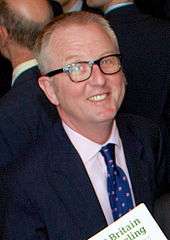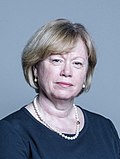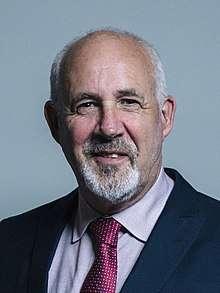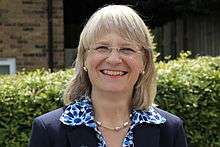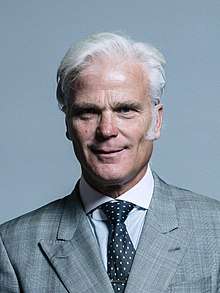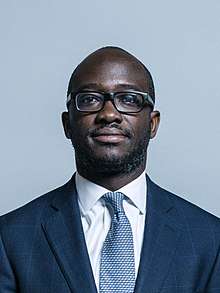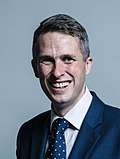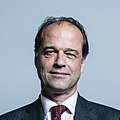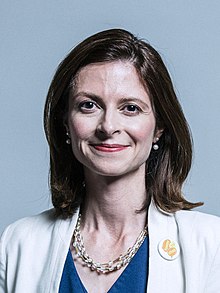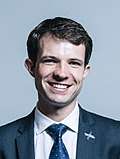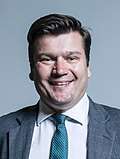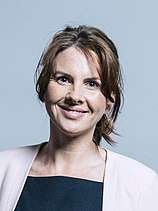Parliamentary Private Secretary to the Prime Minister
The Parliamentary Private Secretary to the Prime Minister is a position serving the Prime Minister of the United Kingdom. The holder of the office is widely viewed as the Prime Minister's "eyes and ears" on the backbenches, serving as a liaison to the Prime Minister's parliamentary party.[1][2] The Parliamentary Private Secretary is also responsible for meeting with members of Parliament when the Prime Minister is unavailable, and accompanying the Prime Minister to, and assisting them with preparations for Prime Minister's Questions.[2][3]
| Parliamentary Private Secretary to the Prime Minister | |
|---|---|
.svg.png) Royal Arms as used by Her Majesty's Government | |
| Prime Minister's Office | |
| Appointer | Prime Minister |
| Formation | 1906 |
| First holder | Hubert Carr-Gomm |
| Website | 10 Downing Street |
The Parliamentary Private Secretary can become a highly powerful and significant role; Bonar Law's Parliamentary Private Secretary, J.C.C. Davidson acted in effect as his Chief of Staff.[3] Margaret Thatcher's downfall from the Conservative Party leadership in 1990 is attributed by many[4][5][6] to the actions of her Parliamentary Private Secretary, Peter Morrison, in failing accurately to count votes amongst Conservative backbenchers. Some Parliamentary Private Secretaries to the Prime Minister go on to hold higher office; Alec Douglas-Home served as Parliamentary Private Secretary under Neville Chamberlain and later went on to serve as Prime Minister in his own right.[7]
There can be multiple Parliamentary Private Secretaries to the Prime Minister at a given time. Many Prime Ministers have used this tactic during their premierships; former Prime Minister, David Cameron, only employed one Parliamentary Private Secretary at a time during his tenure in office, but he appointed John Henry Hayes as a minister without portfolio with responsibility for the Parliamentary Conservative Party, a job typically reserved for the Parliamentary Private Secretary.[8][9]
The current Parliamentary Private Secretaries to Prime Minister Boris Johnson are Alex Burghart and Trudy Harrison.[10][11][12]
Parliamentary Private Secretaries to the Prime Minister (1906–present)
In popular culture
The final instalment of Michael Dobbs's and the BBC's House of Cards trilogy, The Final Cut, includes a character, Claire Carlsen, who serves as Prime Minister Francis Urquhart's Parliamentary Private Secretary, ultimately betraying him by attempting to leak documents about his service in the British Army.
See also
References
- Shell, Donald. "Churchill to Major: The British Prime Ministership Since 1945". Book. C. Hurst & Co. Retrieved 21 October 2013.
- Barnett, Hilare (2002). Constitutional & Administrative Law. Cavendish Publishing Ltd. p. 322.
- Kavanagh, Dennis (2013). The Powers Behind the Prime Minister: The Hidden Influence of Number Ten. HarperCollins UK.
- Cosgrave, Patrick (15 July 1995). "Obituary: Sir Peter Morrison". The Independent. London. Retrieved 22 October 2013.
- Hoggart, Simon (16 October 2013). "Margaret Thatcher: Power and Personality by Jonathan Aitken – review". The Guardian. Retrieved 22 October 2013.
- Clark, Alan (1993). Diary. 354: Weidenfeld & Nicolson.CS1 maint: location (link)
- "PIL: Parliamentary Private Secretaries to Prime Ministers 1906 – present – Commons Library Standard Note". Retrieved 22 October 2013.
- Kirkup, James (28 March 2013). "John Hayes goes to No 10. Is David Cameron admitting to fear of his own party?". London: The Telegraph. Retrieved 17 November 2013.
- Sparrow, Andrew. "Cameron moves John Hayes in mini reshuffle: Politics live blog". The Guardian. Retrieved 17 November 2013.
- "The Londoner: The cool cats of Westminster". Evening Standard. 25 July 2019. Retrieved 27 July 2019.
- "James Heappey appointed Boris Johnson PPS". jamesheappey.org.uk. 5 August 2019.
- "Boris Johnson appoints MP Trudy Harrison as parliamentary private secretary". Press Association. 17 December 2019. Retrieved 18 December 2019.
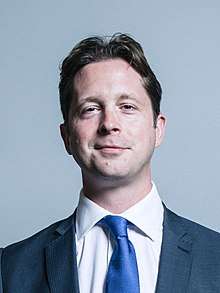
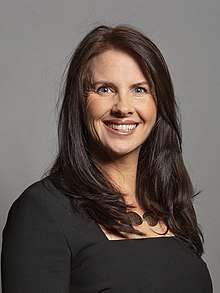
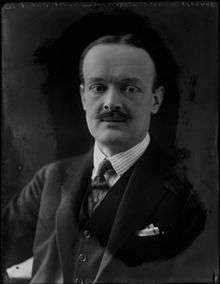
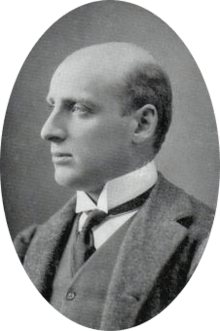
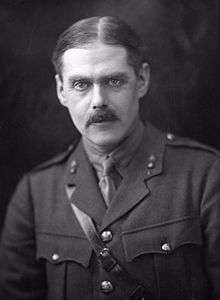
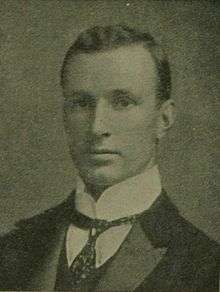
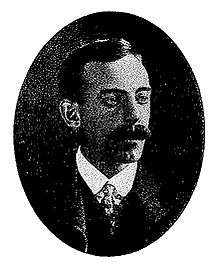
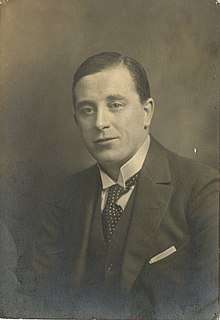
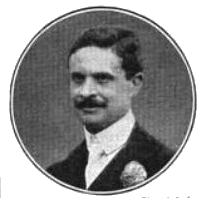
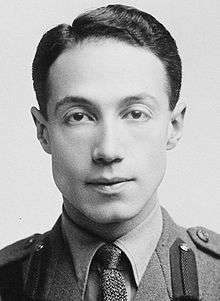
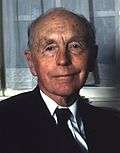
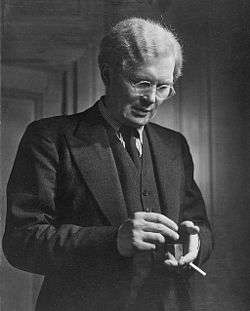
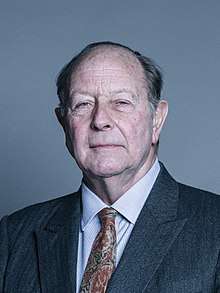


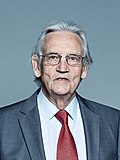
.jpg)
